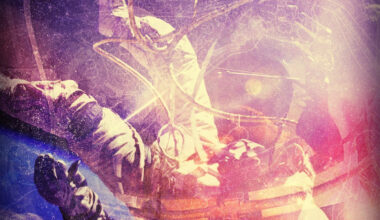Melody Maker

In the last few years, German composer Nils Frahm has achieved something miraculous: he’s made classical cool. Many acts, from Max Richter to Ólafur Arnalds, have combined classical piano and arrangements with electronic production with great success, but Berlin’s Frahm inspires real devotion in his fans. As the most prominent artist on Robert Raths’ pioneering Erased Tapes label, he’s developed a unique aesthetic that modern listeners can identify with: a post-techno and ambient take on composition that offers a respite from information overload and harsh beats, with a gentle, stately composure.
He’s a favourite on Mary Anne Hobbs’ BBC 6 Music breakfast shows, but you’re as likely to also hear him collaborating with dance acts or featuring on a Fabric mix CD. Far from being easy listening, Frahm’s art is making something seen as highbrow accessible, adding his own subtle avant-garde touches along the way.
So ‘All Melody’ is big news. It’s also something of a surprise, as unlike the piano works of 2015’s ‘Solo’, Frahm’s classical side takes a back seat here in favour of more abstract machine creations closer to ‘Says’ from 2013’s ‘Spaces’ album.
At least, on first listen. In fact, the mechanistic sounds that emanate from ‘All Melody’ come from a variety of sources, some of them acoustic instruments that Frahm has treated to resemble electronic ones. Taking the mix of electronics and classical a step further, Frahm has blurred the boundaries between them. Recorded in his newly-constructed Saal 3 studio on the banks of Berlin’s River Spree, the composer has incorporated the sounds of a pipe organ and harmonium amid more overtly synthetic instruments.
Of the process behind the new record, Frahm has said: “I heard a synthesiser which sounds like a harmonium playing ‘All Melody’, melting together with a line of a harmonium sounding like a synthesiser. My pipe organ would turn into a drum machine, while my drum machine would sound like an orchestra of breathy flutes. I would turn my piano into my very voice, and any voice into a ringing string. The music I hear inside me will never end up on a record, as it seems I can only play it for myself.”
Tortuous creative logic aside, ‘All Melody’ is mesmerising. The overt techno manoeuvres of the title track, replete with its slow four/four kick-drum and oscillating icy textures forming like fractals of frost on a windowpane, are transporting. The small-hours sensation of ‘#2’, with its dust motes of found sound, and pinging abstract percussive rhythms, could be a car gliding under city lights, before unfolding into a trance inducing electronic melody worthy of Manuel Göttsching. The piano joins later on to enhance the blissful devastation.
Another novel aspect of ‘All Melody’ is its incorporation of vocals. On ‘Momentum’, choral voices are introduced to a massed orchestral sound, but are used sparingly, before making way for a bleakly beautiful parade of bleeps. ‘The Whole Universe Wants To Be Touched’ is almost entirely vocal, with its female voices weaving a haunting spell – there’s a distinctly mystical acid folk feel.
It’s clear that Frahm would rather not be categorised, and as if to prove this, the gorgeous ‘Fundamental Values’ adds subtle slivers of Miles Davis-esque jazz trumpet to its melancholy piano, while the interjection of the same horn on the subtle ‘Human Range’ finds a compelling sweet spot between jazz, piano and voice. ‘Sunson’ is pretty ambient techno, with the voices blending deeply into the distant orchestral sweeps. Upfront, a hypnotic display of flutes and pipes overlap and spill into one another, soaked in delay effects.
Still, Frahm’s skill as a crafter of exquisite piano pieces is here too. ‘My Friend The Forest’ could make your heart leap, with its bittersweet simplicity and naked beauty. You can hear the room in a similar way to Aphex Twin’s ‘Aisatsana’, which adds to its majesty. Similarly, ‘Forever Changeless’ is fragile and elegant, a sepia recording of a bygone era redolent of Gonzales’ ‘Solo Piano’ albums.
‘Harm Hymn’ closes the album, an ethereal piece composed of pipe organ, setting a mournful tone, concluding what is Nils Frahm’s most complete and powerful album to date. Though the interface between electronics and classical isn’t new – everyone from Terry Riley to Steve Reich, La Monte Young and Philip Glass has explored this territory before – Frahm renders it anew, drawing from a far broader range of influences, moods and recording techniques. ‘All Melody’ could be his defining statement.





